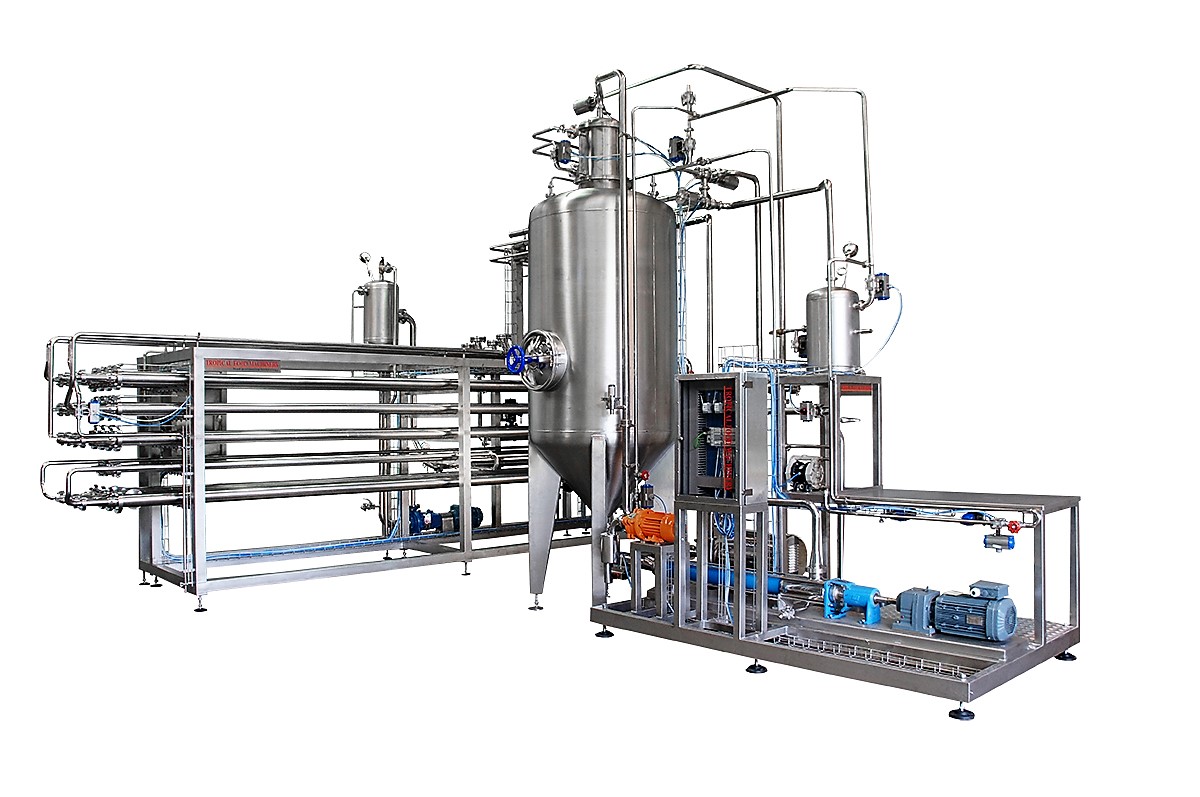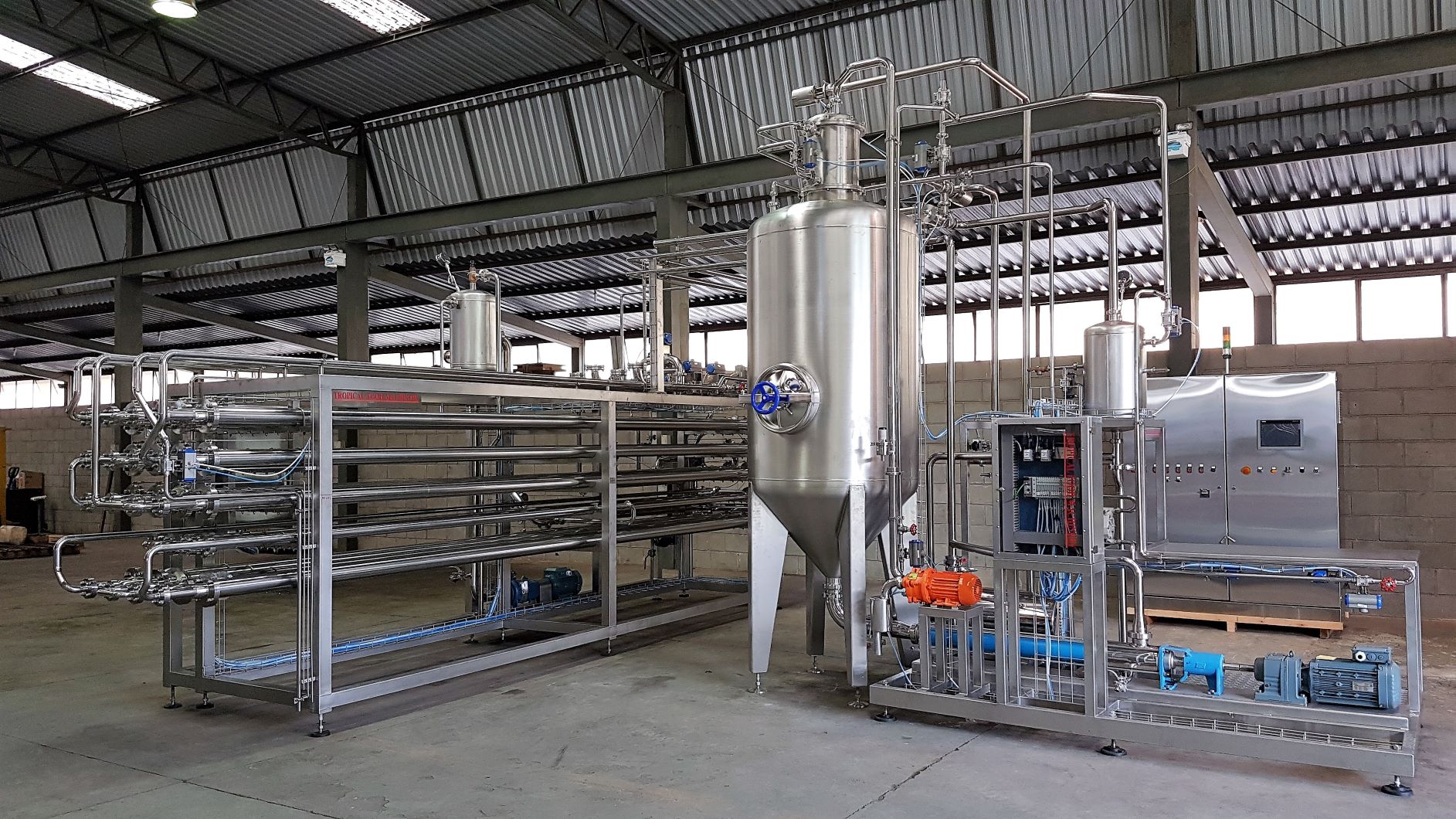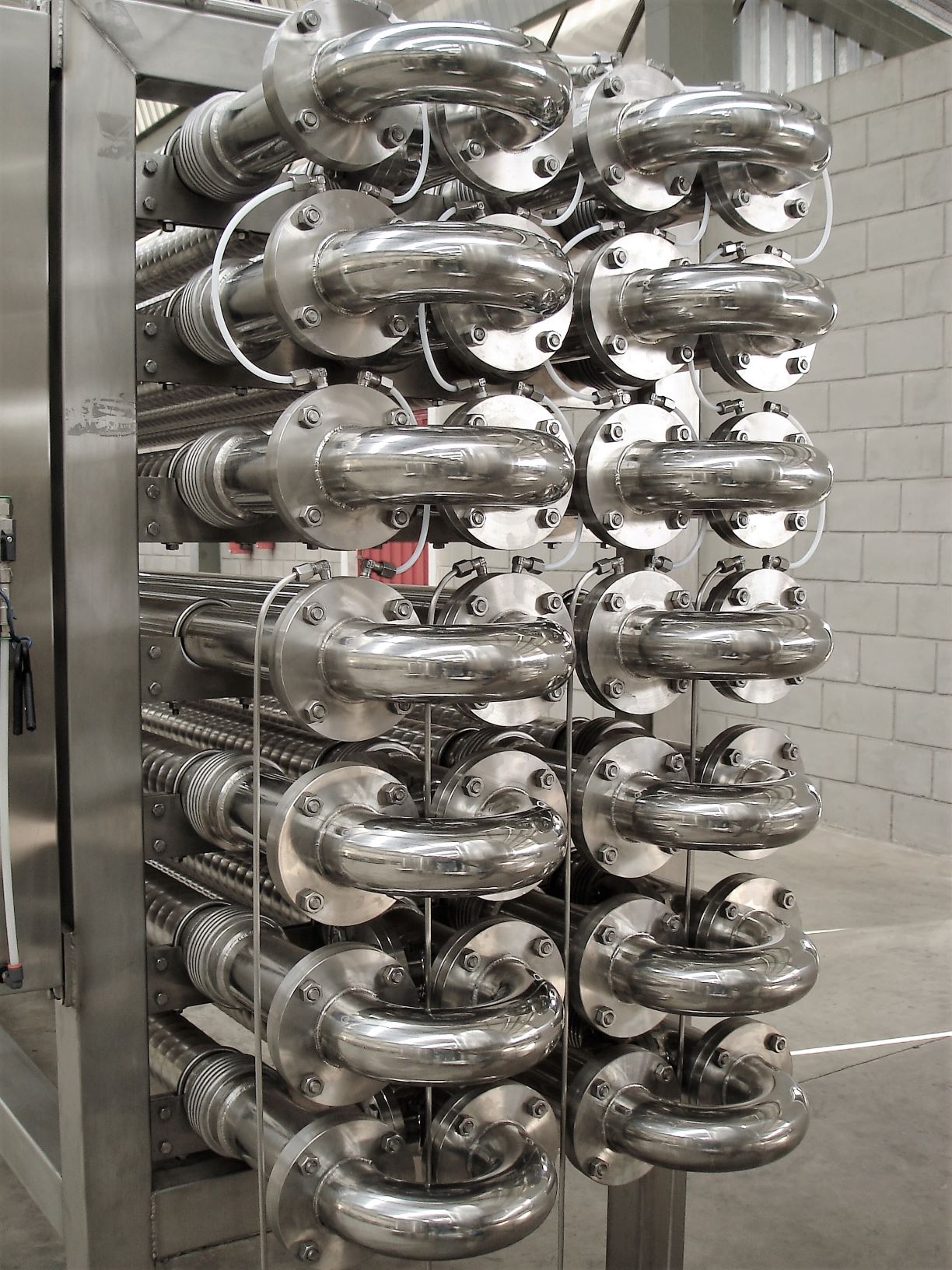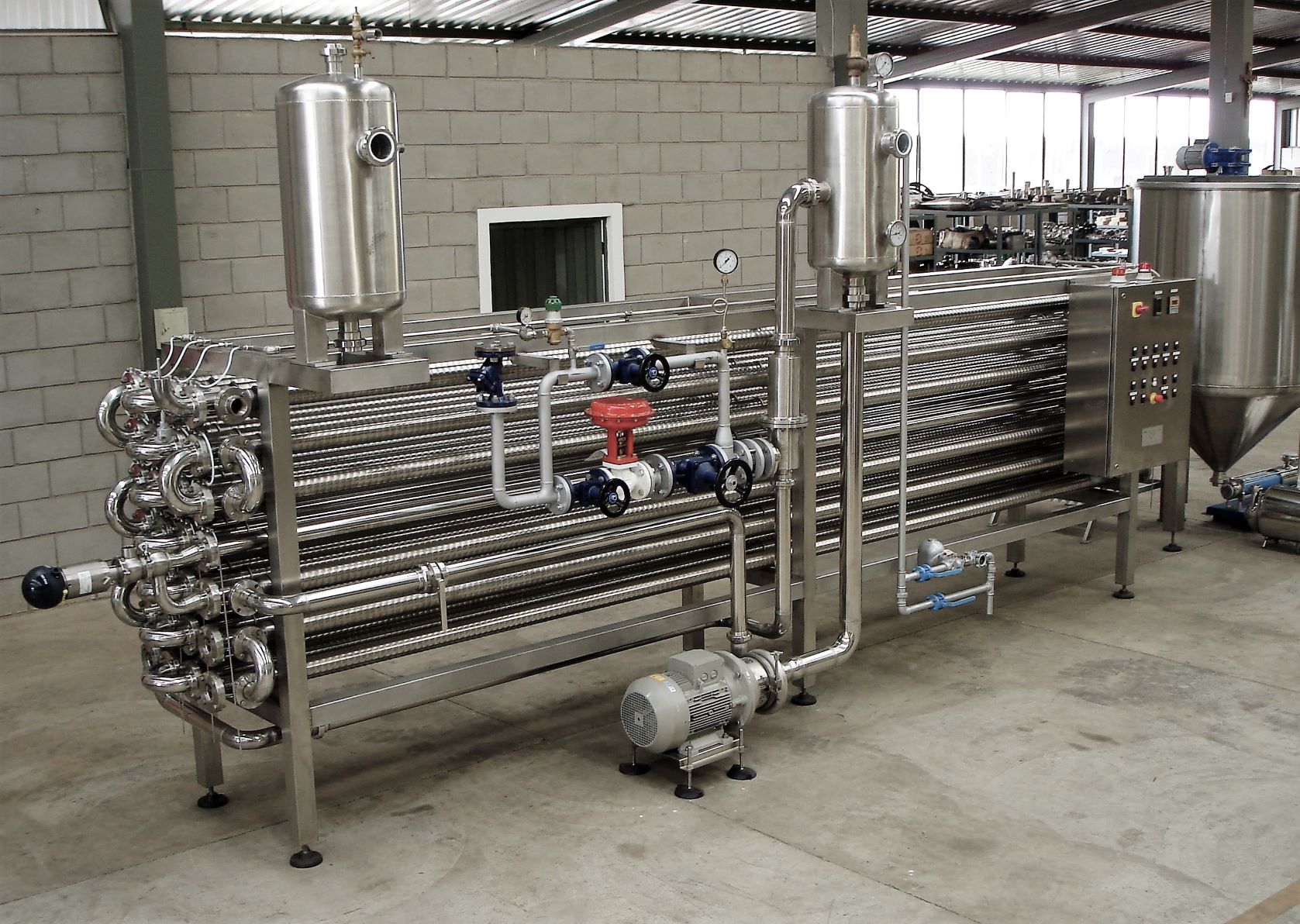Pasteurizers for sauces, juices and pulps
Pasteurizers for sauces, juices and pulps
They are ideal for the treatment of whole pulps, concentrated juices and tomato sauce for frozen or hot fill bottling. TFM heat exchangers are designed with the most advanced technology, proof of that is the automated and computerized operation that allows an extremely safe and reliable processing.
The equipment is fully built in stainless steel AISI 304 or 316, according to the type of treated product. The components are also mounted on a skid steel structure. The operation of TFM heat exchangers can be fully automated including CIP cleaning system. Automation system records relevant data of the process and provides Quality Control of the plant.
Using the highest quality components the TFM heat exchangers are highly trustworthy and may face the toughest harvest safely.
The assembly can be provided of deaerator, for nectars and whole pulps, and a homogenizer if required by the customer.
Heat exchangers are customized according to the custom’s demand from capacity, thermal cycles and the desired degree of automation.




Launch: EA-2C-SB Filling Machine – Agro
The Aseptic Filler – AGRO Version was developed for Bag in Box filling processes intended for the agricultural sector, serving applications such as biofertilizers, inoculants, live products, liquid fertilizers and similar inputs. This version uses ozone for sterilization, ensuring the microbiological integrity of the process and offering a controlled environment for sensitive products. Compatible with aseptic bags from 3 to 20 liters, the solution ensures filling precision and product stability throughout the entire filling cycle.
Launch: EA-2C-SB Filling Machine – Agro and Dairy Versions
Tropical Food Machinery, from Pouso Alegre (MG), launches new Bag in Box aseptic filling machines in Agro and Dairy versions. The Agro version uses ozone for sterilization, ideal for inoculants and biofertilizers. The Dairy version uses hydrogen peroxide, ensuring safety in the packaging of dairy bases and Low Acid products. Low acidity products meet FDA (USA) standards, ensuring quality and export. TFM also maintains the standard Aseptic version, for pulps and tomatoes. More versatility and the same engineering excellence — Tropical Food Machinery.